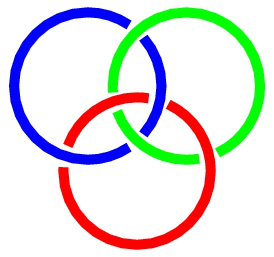Speaker
Joseph Macek
(University of Tennessee and Oak Ridge National Laboratory)
Description
For two particles it is often convenient to replace local or non-local potentials by zero-range interactions. Since they are zero-range, these interactions can often be replaced by boundary conditions at a point where the separation between two particles vanishes. In either case, zero-range potentials are useful when the details of the interaction at small distances are not critical for the dynamics. The description of Bose condensates is an example where zero-range interactions are basic to theories of the condensed aggregates. These theories employ the model interactions to obtain a mean field description of large numbers of particles. On a more fundamental level, zero-range interactions are employed to model the interactions of three particles, where they have been used to study the properties of loosely-bound Efimov states. Owning to their success in these areas they have been generalized to allow for multichannel interactions, interactions for states with non-zero angular momentum and energy dependent zero-range potentials. Properties of these generalized potentials and their applications will be illustrated for the interaction of three particles at vanishingly small kinetic energy.
Author
Joseph Macek
(University of Tennessee and Oak Ridge National Laboratory)

